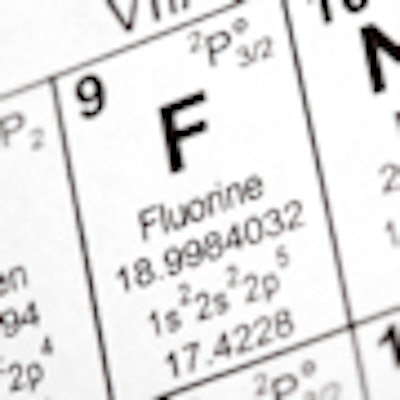
The ADA lost an ally in the water-fluoridation debate when the National Kidney Foundation (NKF) changed its supportive stance on June 7. The foundation's name has since been removed from the ADA's Fluoridation Facts compendium.
In a recent position paper, the NKF said that it would be prudent to monitor the fluoride intake of patients with chronic kidney disease (CKD), and that these patients should be made aware of potential risk from fluoride. The NKF also stated that it no longer has a stance on the optimal fluoridation of water.
The NKF's previous paper on fluoridation, released in 1981, maintained that there was insufficient evidence to recommend fluoride-free drinking water for the kidney disease population.
The 1981 paper has been challenged by a lawyer, an academic dentist, and a public health professional (Daniel Stockin, M.P.H., at the Lillie Center, a Georgia-based public health training firm working to end water fluoridation). They criticized the NKF for adhering to an outdated position on fluoride and ignoring new information, such as a published review by Kidney Health Australia and the National Research Council's (NRC) March 2006 report on fluoridation.
As DrBicuspid.com reported in an earlier article, the NRC concluded that the Environment Protection Agency's current limit (4 mg/L) of fluoride in drinking water should be lowered to protect children from fluorosis, which causes yellowing and pitting of the enamel. In adults, tentative evidence links overexposure to fluoride with bone fracture, damage to the brain and thyroid gland, and mild skeletal fluorosis.
The report also notes that, according to case reports and in vitro and animal studies, exposure to fluoride at concentrations greater than 4 mg/L can irritate the gastrointestinal system, affect renal tissues and function, and alter hepatic and immunologic parameters.
"Such effects are unlikely to be a risk for the average individual exposed to fluoride at 4 mg/L in drinking water," the NRC noted. "However, a potentially susceptible subpopulation comprises individuals with renal impairments who retain more fluoride than healthy people do."
The NKF now says that patients with chronic kidney disease should be made aware of the potential risk of fluoride exposure through information on its Web site. The report also notes that this risk is greatest in areas with naturally high water fluoride levels.
"The oral health of people with CKD is certainly of interest to the NKF, but balancing the overall benefits and risks of fluoride exposure is the primary concern," the organization stated.
Critics of community water fluoridation have hailed this new stance as a minor victory but argue that the statement does not go far enough.
"They issued no press release about this new position and offered no direct link to the information. You have to type in the term 'fluoride' and hit search to find this information," Stockin said.
Stockin has been arguing against community water fluoridation for years.
"When you are going to expose an individual to a chemical like fluoride, you need to understand their health and account for total dosage," he said. "Water fluoridation violates these fundamental principles."
It exposes people of varying health to an unknown amount of a potentially hazardous material, he added.
He admits that fluoride has a small amount of caries prevention ability, but feels that benefit does not balance out the overall health risks.
"The reason that dentists have not stopped using fluoride is because they are too invested in it," Stockin said. "If I were a dentist, I would not touch fluoride with a 10-foot pole."
ADA spokesperson Howard Pollick, B.D.S., M.P.H., a professor at the University of California, San Francisco School of Dentistry, feels there has been no change in the NKF's stance.
"Tap water has not been recommended for dialysis patients since 1981," he said, pointing to one of the recommendations in the new position paper. And they maintain that there is not enough evidence to recommend fluoride-free drinking water, he added.
So why has the NKF removed its name from the ADA fluoride compendium?
"There is legal pressure on them, and this is perhaps a response to that," Dr. Pollick said.
There is overwhelming evidence to prove that fluoridated water reduces dental decay but no evidence to support any health concerns, he added.
According to U.S. Public Health Service guidelines, the optimal water fluoridation level that prevents dental decay without causing dental fluorosis is between 0.7mg/L to 1.2mg/L.
In which case, 4 mg/L sounds fairly high.
"It's the limit," Dr. Pollick explained. "If you go above it, you are at risk for skeletal and dental fluorosis."
Steven M. Levy, D.D.S., M.P.H., agrees. He is the director of the Iowa Fluoride Study, which has tracked the subtle effects of fluoride on 700 Iowa children for the past 16 years.
"Since water fluoridation is the most efficient and cost-effective way to prevent caries, I do strongly believe it is appropriate to encourage expanded community water fluoridation, and that benefits greatly exceed possible risks," he said.
The NKF refused to comment.
"The 1981 NKF position paper on fluoridation is outdated. The paper is withdrawn and will no longer be circulated, effective from the 10/06/07," concludes the new position paper.



















